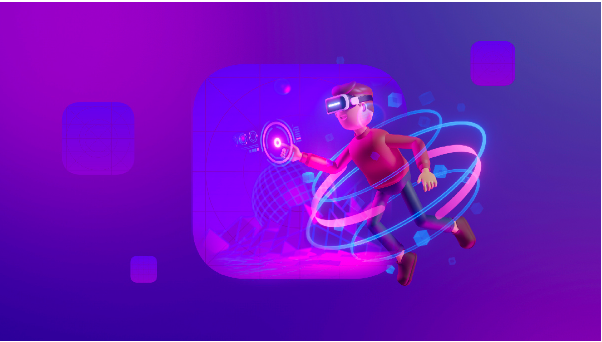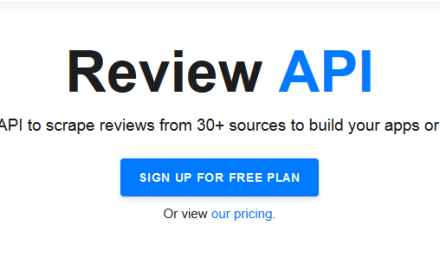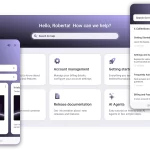A metaverse app is a complex digital platform that provides users with a rich and immersive experience. There are several key features and technologies that are essential to building a successful metaverse app. Let’s have an in-depth look at each of these elements.
Key Features of a Metaverse App
Infrastructure
The infrastructure of a metaverse app is critical to its success. It needs to be robust and scalable to accommodate the high volume of traffic expected from users. The infrastructure should be designed with redundancy so that if one component fails, the rest of the system continues to function.
Human Interface Technologies
Metaverse apps need advanced human interface technologies to deliver an immersive experience. These include touch, gesture recognition, voice control, and eye tracking. The user interface should be intuitive and easy, allowing users to navigate and interact with the Metaverse naturally.
Digital Avatars
Digital avatars are the representation of users in the Metaverse. They can take many forms, such as a 3D character or a holographic representation. Avatars are an essential part of the metaverse experience as they allow users to interact with each other in a virtual environment.
Decentralization
Decentralization is a key principle of metaverse app development. By design, metaverse apps should be decentralized and distributed, allowing users to control their data and assets. This helps to ensure that the Metaverse remains accessible and free from censorship.
Security
Security is a top priority when it comes to metaverse app development. Users must trust that their data and assets are secure and their privacy is protected. Metaverse apps should implement robust security measures to protect user data, including encryption and multi-factor authentication.
Creator Economy
One of the most exciting aspects of the Metaverse is the creator economy. This refers to the ability for users to create and sell digital assets, such as clothing and accessories for their avatars, within the Metaverse. This opens up new opportunities for entrepreneurship and economic growth in the digital realm.
Technologies That Underlie Metaverse Apps
Blockchain
Blockchain is the backbone of the Metaverse. It provides a secure and decentralized platform for exchanging digital assets and creating smart contracts. Blockchain helps ensure that user data is secure and that the Metaverse remains free from censorship.
3D Reconstruction
3D reconstruction is an essential component of metaverse app development. It involves creating 3D models of objects and environments that users can interact with in the virtual world. 3D reconstruction is critical to delivering an immersive experience in the Metaverse.
VR
Virtual reality (VR) is a key component of metaverse app development. VR provides an entirely immersive experience for users, allowing them to enter a digital environment and interact with it realistically.
AR
Augmented reality (AR) is another critical technology for metaverse app development. AR implicates overlaying digital information in the real world, providing a blended experience for users. This technology can enhance the metaverse experience, making it more interactive and engaging.
IoT
The internet of things (IoT) is a network of physical devices that are connected to the internet and can exchange data. IoT devices can create a seamless experience between the virtual and real worlds in the Metaverse. For example, users could use their smartwatch to control their avatars in the Metaverse.
AI
Artificial intelligence (AI) plays a significant role in metaverse app development. AI can be used to create more realistic and engaging digital environments and provide personalized experiences for users. It can also provide real-time recommendations to users based on their interests and preferences.
Recommended Tech Stack for the Metaverse Platform
Backend development
Java, Python, and Node JS are some of the popular technologies for backend development that can be used for metaverse app development. These technologies provide the necessary tools for creating a robust and scalable backend infrastructure.
Frontend development
React, Angular, and Vue JS are popular frontend development technologies that can be used for metaverse app development. These technologies provide the necessary tools for creating an intuitive and user-friendly user interface.
Mobile development
Swift (iOS), Kotlin (Android), and React Native (cross-platform dev) are popular mobile development technologies that can be used for metaverse app development. They help the apps to perform seamlessly across different devices and platforms.
Database
MySQL, PostgreSQL, and Oracle Database are popular technologies that can be used for metaverse app development. These technologies provide mechanisms for storing and managing user data and assets securely and collaboratively.
Cloud infrastructure
AWS, Microsoft Azure, and Google Cloud are popular cloud infrastructure technologies that can be used for metaverse app development. These technologies provide the necessary tools for hosting and deploying metaverse apps on a global scale.
Cost of Metaverse App Development
The cost of developing a metaverse app or virtual world can range from $20,000 to $300,000, depending on the choice of solution (custom development vs. ready-made infrastructure) and the number and complexity of features. Due to the expertise and resources required for metaverse app development, it’s not a cheap product. Keep in mind that the hourly rates of the development partner company will also impact the final cost.
Conclusion
The Metaverse is an exciting and rapidly-evolving field that promises to revolutionize how we experience the digital world. Building a metaverse app requires a deep understanding of the key features and technologies essential to delivering an immersive and engaging user experience.
By utilizing the recommended tech stack and following the principles of decentralization and security, metaverse development company can create metaverse apps that are robust, scalable, and accessible to users around the world. Aided with the right tools and expertise, there are endless possibilities for developing a metaverse app.






















